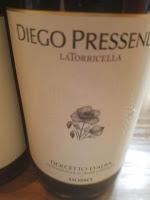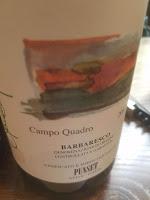
Photo Credit: Please The Palate
Alba, Asti, Barolo, Barbaresco, Dogliani, Langhe, and Roero. These are a few of the iconic Piedmont regions where, in the late 18th-century, wine producers desired "a unique and recognizable bottle of their own, a Bottiglia d’Origine Controllata e Garantita (BOCG) for their own wines. And requested it from the master glaziers of the renowned Vetrerie di Porino firm just outside the city of Turin". This effort lead to the Albeisa Bottle - a hand-made bottle, produced piece by piece, and included elements of the popular a Bordeaux and Burgundian bottles. The bottle enjoyed a brief period of popularity but suffered due to ill timing as the industrial revolution ushered in large scale glass manufacturing pricing the Albeisa Bottle out of existence.
Photo Credit: Please The Palate
That changed in 1973 when 16 wine producers resurrected the "BOCG" of the Langhe region not just to reproduce "an old bottle but rather that of tying it to a territory and regulate its use within the confines of that territory. The new 1973 version indicates its name in a clear and precise way through letters in relief on the glass repeated four times on the shoulder of the bottle in order to be seen from any viewpoint. Its use is governed by the 'Association of Producers of Alba' which indicates how it can be utilized along with details on which appellation (DOC-DOCG) wines it can contain". There is also just one legal glass manufacturer - Verallia - the successor to Saint-Gobain Vetri.

I was immensely impressed with the friendly, fruit-forward, and fresh wines from Barbera d'Alba. These wines are characterized by low tannins, high acids, and an accompanying rich and bold fruit context. Some excellent examples were from Franco Conterno, Diego Pressenda, Ascheri, and Punset. Those who enjoy fruit-forward wines with a little more tannic structure should seek out Dolcetto d'Alba. Diego Pressenda, La Ganghja, and Punset provided solid contributions from this region. Finally, the Nebbiolo from Barbaresco stood out. These are approachable wines but with ample acids and tannins to hold for aging if one has patience. Once again look to La Ganghja and Punset. Cheers.
